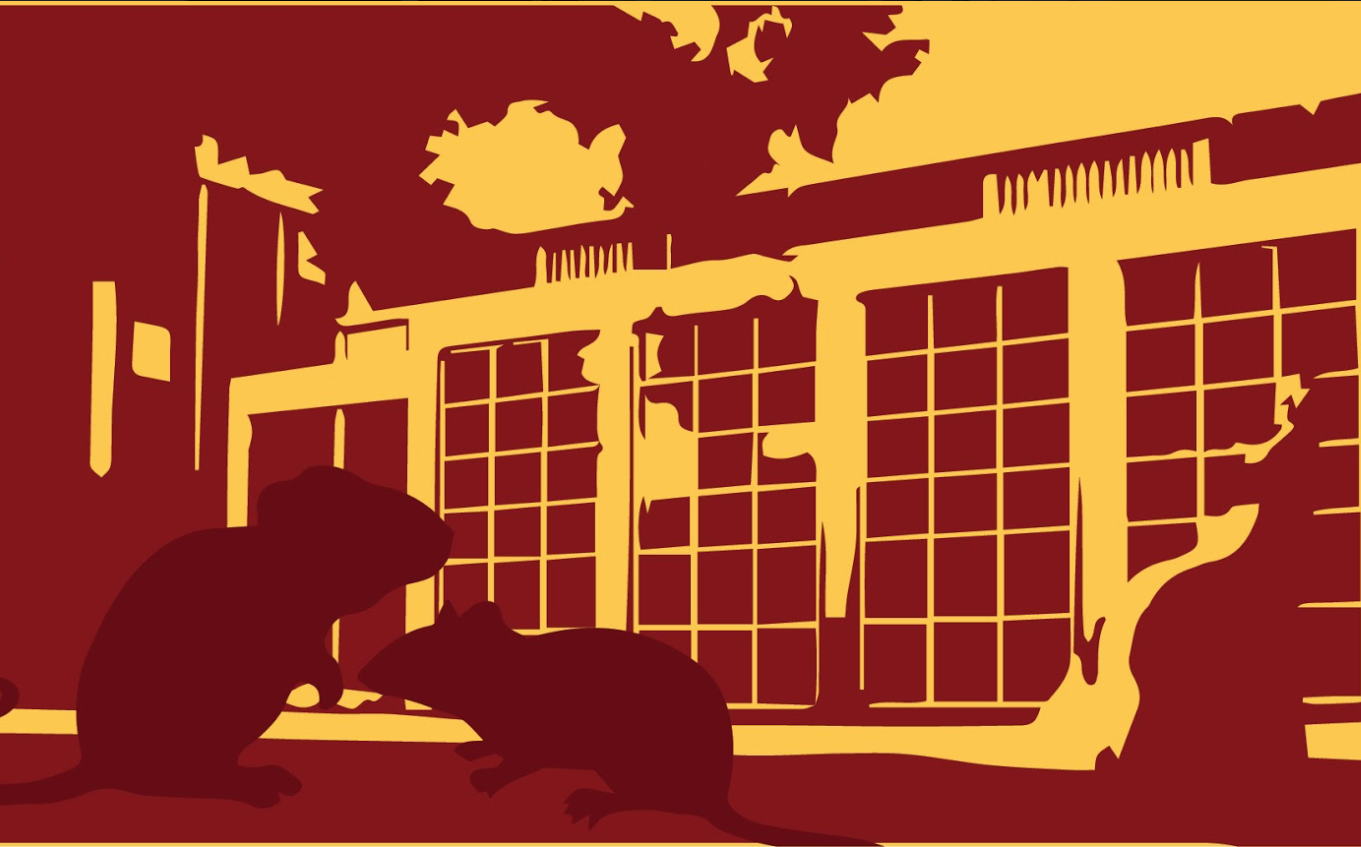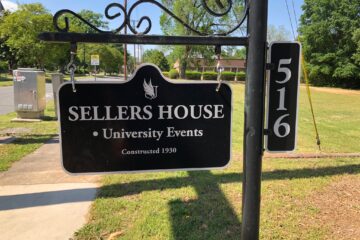A mouse was spotted in Thomson cafeteria, raising student concerns about sanitation and cleanliness in the dining hall.
Beth Warnken, a sophomore English major, was eating in Thomson the day the mouse was seen.
“I was by myself and had my headphones in. Then I saw a worker run by me and I was like, ‘what is happening?’ I looked, and there was a mouse and this girl was screaming about it,” Warnken said.
“There was one little gray mouse in the cafeteria near the food and then it was running all over the place. There were like five workers running around trying to catch it and then everyone was filming it and following it around,” Warnken said.
A second mouse was reported near Eagle Express. The sightings prompted Bryan Harriss, general manager for Sodexo dining at Winthrop, to call Sodexo’s pest control for a follow-up inspection.
“When they come out here, not only do they do an overview of all the buildings, they also go underneath the building which oftentimes is where problems exist. We made sure that they went underneath the building last time they were here, which was last month. I actually met with them last month when they were here just to make sure that they were doing a thorough inspection and review of the whole building. They’ll have to come out with their expertise to determine what else needs to be done,” Harriss said.
Following the sightings, the kitchen and food prep areas were inspected and found to have no sign of rodents.
“We’ve not seen any evidence. You don’t always necessarily have to see a rodent. Sometimes there’s evidence, droppings and those sorts of things. We haven’t seen any of that anywhere, even in here. Our chef who has been here for several years has said that in previous years they did have problems, but he’s in there every day so he was a little surprised to hear that there was one even out here,” Harriss said.
Though unsure of exactly where the mouse came from, Harriss said the recent temperature and weather patterns could be the reason for the mouse’s appearance.
“There’s no certainty where it came from. We have never seen any in a food service area at all this year. It wouldn’t have surprised me if we had because of the conditions. They want warmth, and they don’t want [to be] wet. With all the rain and the cold, we hadn’t seen any and then the one that was this weekend was out in the hallway [by Eagle Express]. How they’re getting in here, no idea at this point,” Harriss said.
Thomson cafeteria recently passed its health inspection, receiving a grade A evaluation.
“[The health department] do a thorough inspection of the whole facility, so they check the kitchen, they check the front of the house and they’re not just here for sanitation, they’re also here making sure the food is safe and those sorts of things,” Harriss said.
Despite the cafeteria’s passing evaluation, Warnken said there are still areas where the sanitation has been lacking.
“I always have to check the cups I get before because there’s usually food on it, and same with plates and forks. It’s all very gross. I was actually going to write a letter to Dan Mahony because it’s so bad. We’ve tried talking to some of the workers, but if feels like nothing really happens ever,” Warnken said. “I go through like ten plates before I find one where there’s nothing on it.”
Thomson cafeteria is a popular part of campus that can see hundreds of customers a day. Keeping it clean in those busy spurts, Harriss said, can be difficult but sanitation is of the utmost importance.
“There are times when we have four or five hundred people in here in a short period of time. We use sanitizer on all our tables and that requires a certain solution that we use, the health department checks that, to make sure that our sanitizer is at the level it needs to be so that we’re not just wiping a table with water, that we have a sanitizer solution that’s doing what it’s supposed to be doing, cleaning and sanitizing the surfaces that we’re touching,” Harriss said.
“We’re making sure that when these folks come out again that they take extra precaution and care to make sure that we have all the safeguards that are needed to try to limit and avoid having these kinds of situations,” Harriss said.




